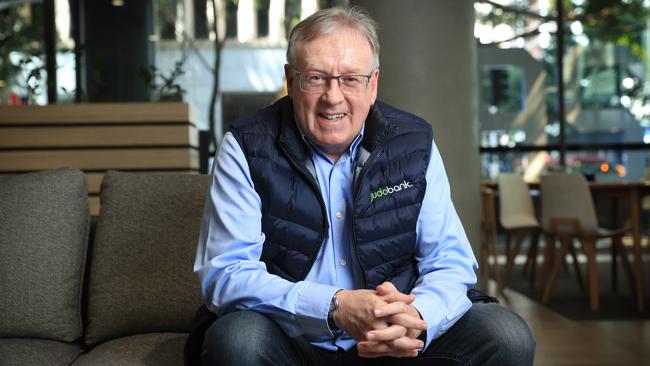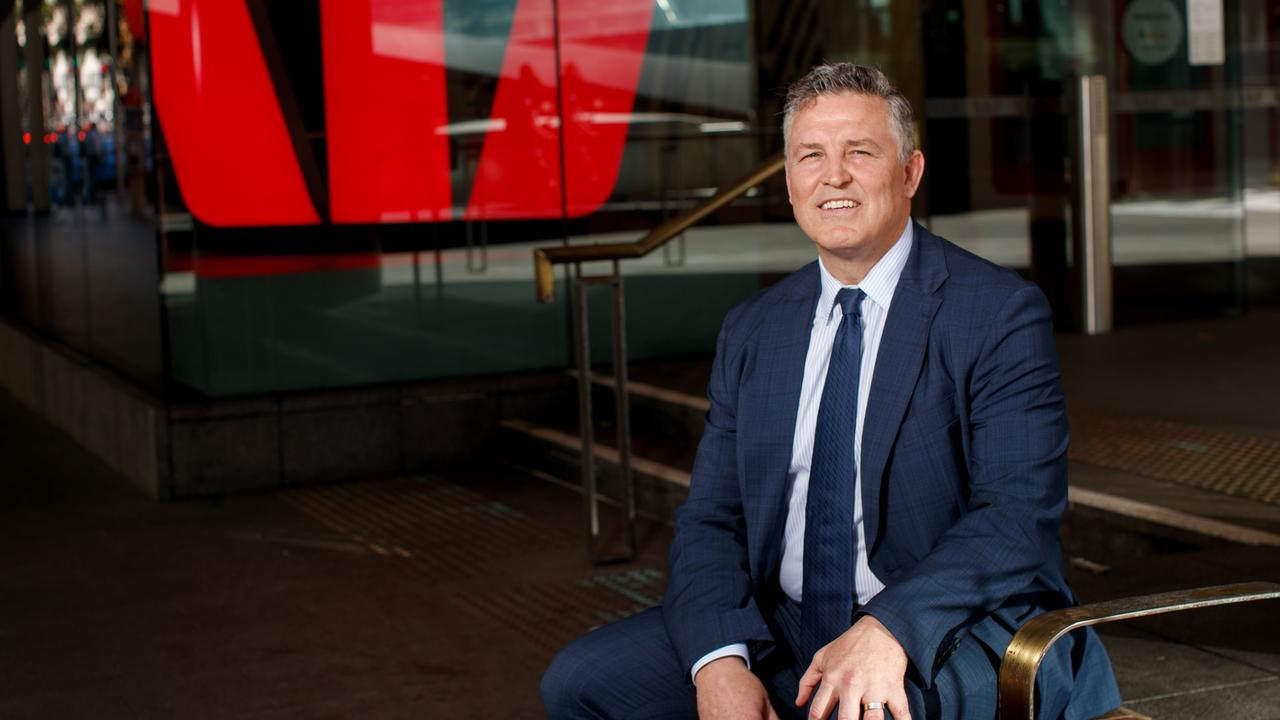Judo Capital chief Joseph Healy says major banks won’t overhaul deposit pricing
Joseph Healy says the major banks won’t shift from their business models which rely on having hundreds of billions of dollar in deposits earning very little interest.

Judo Capital chief Joseph Healy says the major banks are unlikely to commit “economic suicide” and move away from their longstanding business models, which rely on having hundreds of billions of dollars in deposits earning very little interest.
That’s his view despite the competition regulator beginning a probe into pricing dynamics in the deposit market, given federal Treasurer Jim Chalmers’ concerns about the big banks’ slow pace of passing on rate rises to savers.
Mr Healy doesn’t think the major banks would put at risk the economics of lending for home loans at rates markedly higher than those they pay out to deposit holders, as that would dent their respective net interest margins.
“I personally think it would be economic suicide for the (big) banks to reprice their back book at the sort of rates they’re currently paying for three and six-month money today,” he said in an interview.
“We have seen is a lot more price competition from the majors in the term deposit market but it’s not widespread, it’s quite targeted.”
Mr Healy said Judo had a very different model to more established banks.
“As a new bank we’ve got to offer a price that attracts deposits because we don’t have the benefit of a more established brand,” he said.
“Our whole pricing strategy was to be in the order of 60 basis points above the average of the major banks.”
Mr Healy said because net interest margins in the business lending market were fatter than those in the fiercely contested home loan sector, Judo had scope to offer attractive deposit rates.
RBA analysis last week showed at-call deposits, including loan offset balances, accounted for about 80 per cent of banks’ deposits on average. That included some 15 per cent of at-call balances on which banks pay no interest to depositors.
The big banks have, however, increased some of their deposit rates in a more meaningful way this month after the Reserve Bank raised the cash rate for a ninth time since May.
According to Mozo data, this month marks the first time since 2013 that all the big four banks have at least one savings account earning 4 per cent, albeit some of those are linked to conditions or bonus rates of interest.
Mr Healy’s comments on deposits came as Judo delivered a surge in first-half profit to $36.1m. The bank also shrugged off economic uncertainty, to reaffirm annual guidance to expand its loan book to more than $9bn this fiscal year.
The challenger business bank said statutory profit soared to $36.1m in the six months ended December 31, up notably from $700,000 in the same period a year earlier.
Interim profit before tax soared to $53.2m, from $3m in the prior corresponding period, and more than quadrupled on the $12.6m result in the bank’s second half.
Judo’s shares climbed 4.5 per cent to almost $1.51 on Tuesday, bucking a decline in the ASX 200.
Barrenjoey analyst Jon Mott labelled Judo’s earnings a “solid result” that came in 18 per cent ahead of consensus estimates.
“Judo benefited from favourable term deposit pricing. Fiscal 2023 (estimates) and the medium-term guidance remains on track,” Mr Mott said.
“Judo expects deposit pricing to normalise over the second half of fiscal 2023.”
Net interest income increased 122 per cent to $163m during the first-half, as Judo’s loan book hit $7.5bn. But the results also showed the loan impairment expense rising to $22.3m in the six months ended December 31, up from $9.6m in the same period a year earlier.
Judo didn’t have to write off any loans during the six month period.
That came as the RBA was undertaking an aggressive rate tightening cycle to tame inflation across the economy. Successive rate increases since May have seen the cash rate rise to 3.35 per cent from 0.1 per cent.
Judo’s underlying net interest margin – what it earns on loans less funding costs – jumped to 3.56 per cent, from 2.84 per cent six months earlier. In this half, it expects the margin to come in at 3.1 per cent to 3.3 per cent.
Mr Healy expressed optimism in Judo’s earnings prospects, despite challenges in the macroeconomic climate and higher repayments confronting business borrowers.
“Judo’s relationship-based approach to lending becomes more relevant in times of uncertainty. It enables us to stay close to customers and to proactively mitigate any emerging risks,” he said.

“Generally speaking, businesses are holding off (on investment) because they want greater confidence on where interest rates might end up, and where inflation might end up.”
Mr Healy said there were some positives for small business as supply chain bottlenecks and labour shortages eased.
He expects credit growth for small business loans to slow to 3 per cent in calendar 2023, and anticipates the cash rate will peak at 3.5 per cent to 4 per cent.
Judo is targeting a loan book of more than $9bn this fiscal year, and $15bn to $20bn to achieve scale.
“We have great momentum across the business. We are growing profitably and continue to execute against our strategy,” Mr Healy said.
The bank – which listed in late 2021 – did not declare a dividend for the period. Judo’s cost-to-income ratio declined to 54.3 per cent, and it reaffirmed a target to get closer to 30 per cent.
Judo’s results come amid a bumper period for bank profits, aided by the sharp rise in the RBA’s cash rate. Banks benefit from rising rates by passing on hikes to borrowers in full and only partially delivering the increases to deposit accounts.
Bendigo and Adelaide Bank this week reported a bigger-than-expected jump in first-half profit to $294.7m buoyed by higher interest rates, which boosted the net interest margin.
Separately, the competition regulator is assessing ANZ’s $4.9bn acquisition of Suncorp Bank and whether the transaction will substantially lessen competition in the domestic market.
Judo has cautioned the takeover of Suncorp Bank may spur “substantial detriment” to small businesses as it further reduces the number of business lenders in the sector.






To join the conversation, please log in. Don't have an account? Register
Join the conversation, you are commenting as Logout